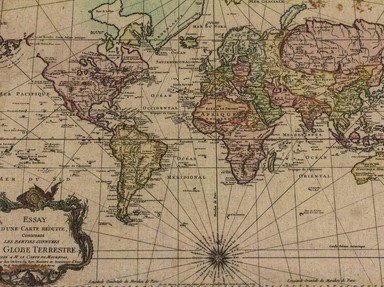Quiz Answer Key and Fun Facts
1. It was 1831 and Britannia ruled the waves. On July 19th of that year, a Commander Charles Swineburne (I am not making this up) watched an island pop out of the waves a mere fifty kilometers from Sicily. What action did the British take in August 1831? (Hint: on what did the sun never set?)
2. Under the noses of the British warship, valiant Sicilian nationalist Michael Florin boldly sailed his fishing boat to the emerging island and marked his discovery by planting...an oar. With their oar in the water (or in the island), the Sicilians were content to take no further action so long as British warships tarried in the area. Once the British fleet withdrew, what action did the Sicilians take?
3. France could hardly permit their colonial rival Britain to perfidiously lay hold of this strategically placed new island. Understanding that they could neither claim sovereignty based on having witnessed the birth of the island as the British nor claim sovereignty based on proximity as the Kingdom of the Two Sicilies could, what strategy did France pursue? (Hint: reason did not always enter into political decisions in the 19th century.)
4. The British christened the newly formed island "Graham Island" after First Lord of the Admiralty Sir James Graham. The Sicilians named it Isola Ferdinandea after their king, Ferdinand II. What course did the French pursue with respect to the lesser (some would say petty) issue of the island's name?
5. The complete silence of the Italian government during these turbulent times may strike some as strange - even Spain indicated that it might have a claim on Graham Island. Why did Italy not claim the Island?
6. The crisis over Graham Island grew ever tenser; whispers of war were heard. Yet abruptly, the conflict subsided. How was the international conflict resolved?
7. During its brief existence it's hard to imagine Graham Island being an appealing destination for tourists. Although a geologic marvel, the dead fish floating near its shores and the island's noxious fumes justified characterizing Graham Island as "a stinking heap of basalt". Despite this, which of the following occurred?
8. From 1832 to 1987 interest in Graham Island (now referred to as Graham shoal) slumbered to be reawakened when American warplanes inexplicably bombed the shoal in 1987. What implausible justification was given for this seemingly preposterous military action?
9. The competitive nationalistic passions of the 19th century abated to be replaced by the competitive nationalistic passions of the 20th and 21st centuries. Most agree that jingoism no longer has a place in the restrained and dispassionate New Europe. Between 2000 and 2002, it seemed that the Island might reemerge, what actions did Italians take to gently remind their European neighbors of their claim to Graham Island?
10. The United Kingdom has certainly outgrown its imperial aspirations... hasn't it? When there was talk of the Island resurfacing in 2000 and the British press referred to the Island as "British Isle", what position did a spokesman from the British foreign office take?
Source: Author
uglybird
This quiz was reviewed by FunTrivia editor
minch before going online.
Any errors found in FunTrivia content are routinely corrected through our feedback system.

